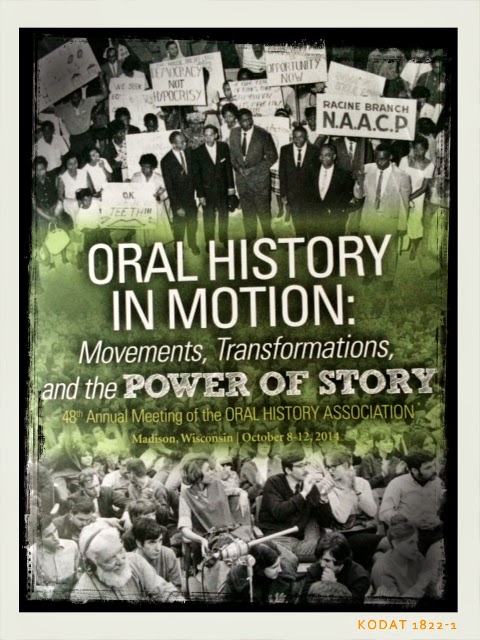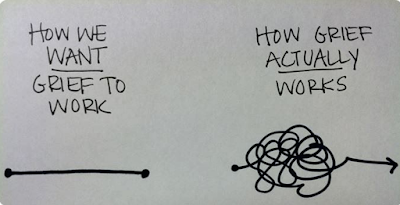Paddy "Bogside" Doherty, 1926 - 2016
And another legend passes.
Paddy Doherty had not been well for the past several years, but it was still hard to hear that he passed away on the 7th January, 2016. Touted as the face of the civil rights movement in Derry, he was a legend. He was a firebrand and an ideas man and a figure of controversy. He was a neighbor, a friend, a husband, the patriarch of his clan.
 |
| Derry Journal 1/8/16 |
Doherty is not the first of his generation to pass. Solicitor Claude Wilton, of ' Say nahing de ye see Claude' fame died in 2008. Photographer Larry Doherty, responsible for capturing on film some of the most iconic images of the early Troubles, died last year. Others have passed and more will follow.
It is too soon, perhaps, to say how they will be, or indeed, should be, remembered.
When I was researching my dissertation on Catholic and nationalist memory in Derry, I spent a lot of time reading obituaries penned in the 1950s. They eulogized the men who were young or in their prime during the Troubles of 1920, who lived through the Civil War, Partitition and the "new normal" of double estrangement in the North. I saw how debates over the future played out in the celebrations of "community men," "real Derry men" and "patriots."
It is strange, then, both to say goodbye to figures who loomed large during the civil rights movement and the Troubles and to witness efforts to craft lessons from lives, memories from the murk and complexity of a tumltuous era. But of storytelling? Paddy Doherty would certainly approve.
It's been said so often of Paddy Bogside that he never let the truth get in the way of a good story. Over the years, I've discovered and collected many that he told or featured in. One of my favorites is the story of his preparations for the Apprentice Boys march on August 12, 1969. He had been named chief steward, in charge of trying to keep the peace. He asked his best friend, Donal McCafferty, to be his deputy.
As he told it, Doherty turned up at McCafferty’s on the evening before the march, as 2,000 people were making their way to St. Eugene’s to pray that the city would remain quiet and peaceful the following day. Doherty remembered dissonance between what he and many others hoped would transpire and what they feared. Particularly for the men and women of his generation, the scenes of 1951 and 1952 resonated as they prepared for the march.
In an interview in 1984, he remembered:It is strange, then, both to say goodbye to figures who loomed large during the civil rights movement and the Troubles and to witness efforts to craft lessons from lives, memories from the murk and complexity of a tumltuous era. But of storytelling? Paddy Doherty would certainly approve.
It's been said so often of Paddy Bogside that he never let the truth get in the way of a good story. Over the years, I've discovered and collected many that he told or featured in. One of my favorites is the story of his preparations for the Apprentice Boys march on August 12, 1969. He had been named chief steward, in charge of trying to keep the peace. He asked his best friend, Donal McCafferty, to be his deputy.
As he told it, Doherty turned up at McCafferty’s on the evening before the march, as 2,000 people were making their way to St. Eugene’s to pray that the city would remain quiet and peaceful the following day. Doherty remembered dissonance between what he and many others hoped would transpire and what they feared. Particularly for the men and women of his generation, the scenes of 1951 and 1952 resonated as they prepared for the march.
Whenever I went in [McCafferty] was on his knees and he had a lid belonging to a pot which he was flattening down and he had on one of those hunting hats that you would get from America -- you know, with the peaks -- and there he was fitting this inside a cap and I was watching him and he said what do you think of this and he put an inch of foam on it and he put in on his head, he says, that’ll stand the weight of a baton you know and then he got up and he showed me, he tied on his shin guards and he put on a big coat in which he’d sewn various leather things, amulets kind of, and he put the big coat on and he marched up and down showing he was rigged for battle the following day and then he picked out of his pocket a blackjack and from the other a knuckle duster…and I thought my good God, here, I know this Civil Rights thing where there’s going to be no violence and I am supposed to make sure there’s no violence, that’s my job, and here McCafferty, this man who wouldn’t hurt a flea, and he’s rigged for battle.
Doherty also recalled that everyone who planned to participate in the march made certain that everything they wore was clean.
He joked that everyone was terrified, not that they would be killed, but that they would end up in the hospital, “and be found with dirty underwear on them, that would be the worst possible thing that could happen. As a result, it was a very clean march.”
I will never forget the first time I met Paddy Doherty. We were sitting around a table in an office on the Spencer Road in 1999, reviewing a proposal for the Spencer Road redevelopment project created by plannng graduate students from UMass Amherst. Doherty was gleeful that someone had come to Derry and actually done something. He declared, "If only I had 10p for every academic that came here, wringing their hands about the Troubles and then futtering off to write a book about it, we'd have no fundraising problems at all!" And what good did any of that ever do us? Not a thing!"
Those were the days before I became a grad student, let alone an academic. From the beginning, I wanted to be a different kind of scholar of Derry, not someone who extracts its history and leaves. And that I owe, in no small part, to Paddy Doherty.
May he rest easy. And may we remember him, not only through the words we say, but through the things we do.










May he Rest in Peace.
ReplyDelete